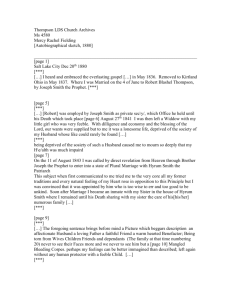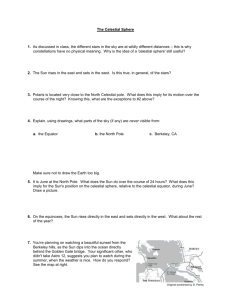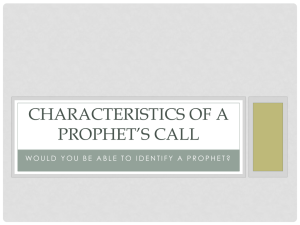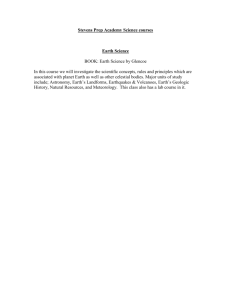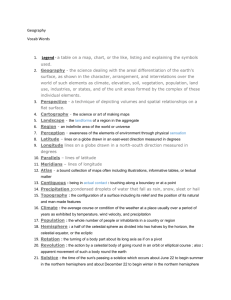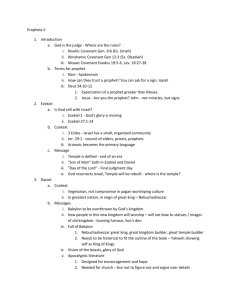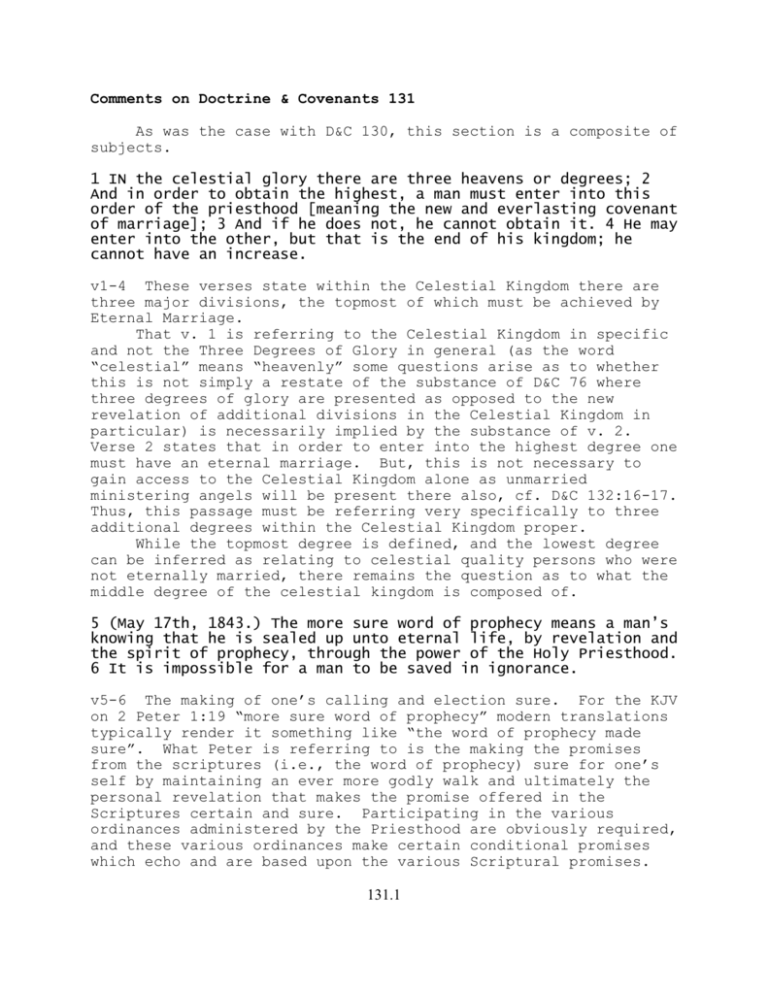
Comments on Doctrine & Covenants 131
As was the case with D&C 130, this section is a composite of
subjects.
1 IN the celestial glory there are three heavens or degrees; 2
And in order to obtain the highest, a man must enter into this
order of the priesthood [meaning the new and everlasting covenant
of marriage]; 3 And if he does not, he cannot obtain it. 4 He may
enter into the other, but that is the end of his kingdom; he
cannot have an increase.
v1-4 These verses state within the Celestial Kingdom there are
three major divisions, the topmost of which must be achieved by
Eternal Marriage.
That v. 1 is referring to the Celestial Kingdom in specific
and not the Three Degrees of Glory in general (as the word
“celestial” means “heavenly” some questions arise as to whether
this is not simply a restate of the substance of D&C 76 where
three degrees of glory are presented as opposed to the new
revelation of additional divisions in the Celestial Kingdom in
particular) is necessarily implied by the substance of v. 2.
Verse 2 states that in order to enter into the highest degree one
must have an eternal marriage. But, this is not necessary to
gain access to the Celestial Kingdom alone as unmarried
ministering angels will be present there also, cf. D&C 132:16-17.
Thus, this passage must be referring very specifically to three
additional degrees within the Celestial Kingdom proper.
While the topmost degree is defined, and the lowest degree
can be inferred as relating to celestial quality persons who were
not eternally married, there remains the question as to what the
middle degree of the celestial kingdom is composed of.
5 (May 17th, 1843.) The more sure word of prophecy means a man’s
knowing that he is sealed up unto eternal life, by revelation and
the spirit of prophecy, through the power of the Holy Priesthood.
6 It is impossible for a man to be saved in ignorance.
v5-6 The making of one’s calling and election sure. For the KJV
on 2 Peter 1:19 “more sure word of prophecy” modern translations
typically render it something like “the word of prophecy made
sure”. What Peter is referring to is the making the promises
from the scriptures (i.e., the word of prophecy) sure for one’s
self by maintaining an ever more godly walk and ultimately the
personal revelation that makes the promise offered in the
Scriptures certain and sure. Participating in the various
ordinances administered by the Priesthood are obviously required,
and these various ordinances make certain conditional promises
which echo and are based upon the various Scriptural promises.
131.1
v6 The reference to not being saved in ignorance uses the term
ignorance in the sense of deliberate ignorance and not any kind
of honest or inadvertent lack of knowledge. For example,
consider Smith’s use of the term in the following:
There are a great many wise men and women too in
our midst who are too wise to be taught; therefore they
must die in their ignorance, and in the resurrection
they will find their mistake. Many seal up the door of
heaven by saying, So far God may reveal and I will
believe.
All men who become heirs of God and joint heirs
with Jesus Christ will have to receive the fulness of
the ordinances of his kingdom; and those who will not
receive all the ordinances will come short of the
fullness of that glory, if they do not lose the whole.
(Teaching of the Prophet Joseph Smith, page 309)
7 There is no such thing as
matter, but it is more fine
purer eyes; 8 We cannot see
we shall see that it is all
immaterial matter. All spirit is
or pure, and can only be discerned by
it; but when our bodies are purified
matter.
v7-8 Spirits are composed of matter, only the matter is of a
finer nature than that which composes our physical bodies.
131.2
Historical Material Pertaining to Doctrine & Covenants 131
Excerpt from History of the Church
Except a man and his wife enter into an everlasting covenant
and be married for eternity, while in this probation, by the
power and authority of the Holy Priesthood, they will cease to
increase when they die; that is, they will not have any children
after the resurrection. (Joseph Smith, History of the Church,
volume 5, page 391)
Excerpt from Journal of Discourses
The increase of those who are exalted in that kingdom will
endure for ever; and the bringing forth of children will not be
attended with sorrow, pain and distress as it is here: these
evils have come in consequence of the fall of man and the
transgression by him of God’s holy laws. (Orson Pratt, Journal of
Discourses, volume 15, page 320.)
Excerpt from Revelations of the Prophet Joseph Smith
Section 131 consists of a variety of doctrinal statements
made by Joseph Smith while visiting members of the Church in
Ramus, Illinois. The Prophet’s personal scribe, William Clayton,
accompanied him on this occasion and preserved Joseph Smith’s
remarks in his personal diary
On 16 May 1843 Joseph Smith, William Clayton, George Miller,
Eliza Partridge, Lydia Partridge, and Lorin Walker traveled to
visit the Saints in Ramus. The Prophet and William Clayton spent
the evening with Benjamin F. Johnson and the others at the home
of William G. Perkins. Before retiring, the Prophet gave Benjmin
F. Johnson and his wife some instructions on priesthood, which
included verses 1-4 of section 131. Putting his hand on the knee
of William Clayton, the Prophet said, “Your life is hid with
Christ in God, and so is many others.” Addressing Benjamin F.,
Joseph said: Nothing but the unpardonable sin can prevent him
[Clayton] from inheriting eternal glory for he is sealed up by
the power of the priesthood unto eternal life having taken the
step which is necessary for that purpose.” The Prophet continued,
Except a man and his wife enter into an everlasting
covenant and be married for eternity while in this
probation by the power and authority of the Holy
priesthood they will cease to increase when they die
(ie. they will not have any children in the
resurrection, but those who are married by the power &
authority of the priesthood in this life & continue
131.3
without committing the sin against the Holy Ghost will
continue to increase & have children in the celestial
glory. The unpardonable sin is to shed innocent blood
or be accessory thereto. All other sins will be visited
with judgement in the flesh and the spirit being
delivered to the buffetings of satan untill the day of
the Lord Jesus.... Prest J. said that the way he knew
in whom to confide, God told him in whom he might place
confidence. He also said that in the celestial glory
there was three heavens or degrees, and in order to
obtain the highest a man must enter into this order of
the priesthood and if he dont he cant obtain it. He may
enter into the other but that is the end of his kingdom
he cannot have increase.
The following morning, 17 May 1843, the Prophet preached
from the first chapter of 2 Peter, when verses 5-6 were recorded,
At 10 [a.m.] Prest. J. preached on 2nd Peter ch 1. He
shewed that knowledge is power & the man who has the
most knowledge has the greatest power. Also that
salvation means a mans being placed beyond the powers
of all his enemies. He said the more sure word of
prophecy meant, a mans knowing that he was sealed up
unto eternal life by revelation & the spirit of
prophecy through the power of the Holy priesthood. He
also showed that it was impossible for a man to be
saved in ignorance. Paul had seen the third heavens and
I more. Peter penned the most sublime language of any
of the apostles.
In the evening of the same day, the Prophet went to hear
Samuel A. Prior, a Methodist preacher. At the close of the
preacher’s remarks, Joseph Smith offered some corrections that
included verses 7-8:
P.M. pres. J. attended the City council & afterwards
rode out with B.F. Johnsons family. In the evening we
went to hear a Methodist preacher lecture. After he got
through Pres. J. offered some corrections as follows.
The 7th verse of C[hapter] 2 Genesis ought to read God
breathed into Adam his spirit or breath of life, but
when the word “ruach” applies to Eve it should be
translated lives. Speaking of eternal duration of
matter he said. There is no such thing as immaterial
matter. All spirit is matter but is more fine or pure
and can only be discerned by purer eyes We cant see it
but when our bodies are purified we shall see that it
131.4
is all matter. The gentleman seemed pleased & said he
should visit Nauvoo immediately.
(Lyndon W. Cook, The Revelations of the Prophet Joseph Smith)
Copyright © 2013 by S. Kurt Neumiller <kurt.neumiller@gmail.com>.
All rights reserved. No part of this text may be reproduced in
any form or by any means for commercial gain without the express
written consent of the author. Digital or printed copies may be
freely made and distributed for personal and public
non-commercial use.
131.5

